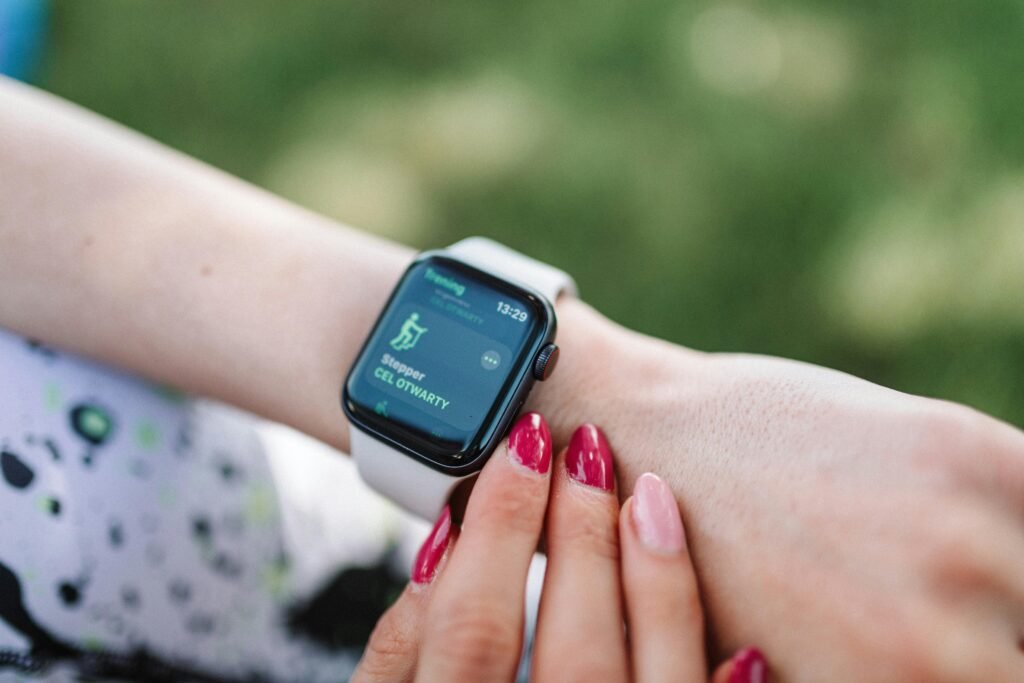
Smartwatches have become ubiquitous on wrists worldwide, seamlessly integrating into our daily lives. From fitness tracking to contactless payments, these miniaturized marvels offer a glimpse into a future where technology seamlessly blends with our bodies. But as technology progresses, the question arises: what new sensors can be improved or embedded in smartwatches to usher in the next generation of wrist-worn tech?
One area ripe for improvement is health monitoring. Current smartwatches excel at tracking basic metrics like heart rate and steps taken. However, next-gen sensors could unlock a new level of health awareness. Advanced blood pressure sensors could provide valuable insights into cardiovascular health, potentially offering early detection of hypertension or other heart-related issues. Similarly, non-invasive blood glucose monitoring sensors could be a boon for diabetics, allowing for real-time tracking and management of blood sugar levels.
Mental health is another crucial area where smartwatches could play a more prominent role. Sensors monitoring electrodermal activity (EDA), which measures tiny fluctuations in sweat, could potentially detect stress levels. Coupled with advanced algorithms, smartwatches could offer personalized stress management techniques like guided breathing exercises or meditation prompts. Additionally, sleep tracking capabilities could be enhanced, not just monitoring sleep duration but also analyzing sleep stages and offering insights into sleep quality. This data could empower users to develop healthier sleep habits and improve overall well-being.
Beyond health, environmental sensors hold immense potential. Smartwatches equipped with air quality sensors could alert users to pollution spikes, allowing them to make informed decisions about their outdoor activities. Similarly, built-in UV sensors could warn users about excessive sun exposure, promoting sun safety practices.
The realm of personal safety could also benefit from innovative sensor technology. Fall detection, already present in some smartwatches, could be further refined to include real-time emergency call features, providing peace of mind for those prone to falls or at-risk individuals. Additionally, smartwatch microphones could be enhanced to detect abnormal heart rhythm sounds, potentially leading to earlier intervention in case of cardiac emergencies.
For the fitness enthusiasts, the future holds exciting possibilities. Muscle activity sensors could provide more detailed workout data, allowing users to track specific muscle groups engaged during exercise. Advanced GPS technology with improved indoor tracking capabilities could revolutionize fitness routines, offering accurate distance and pace data even during treadmills or indoor cycling sessions.
However, integrating these new sensors presents challenges. Battery life is a major concern. Current smartwatches often struggle to offer extended battery life with existing sensor functionalities. Incorporating power-hungry new sensors will necessitate advancements in battery technology or the development of ultra-low-power sensor designs.
Data privacy is another critical consideration. The vast amount of health and personal data collected by next-gen smartwatches raises concerns about user privacy and security. Robust security measures and user control over data collection will be essential to ensure user trust and ethical data practices.
The ethical implications of continuous health monitoring also warrant discussion. Constant health data streams could lead to anxiety or health preoccupation for some users. Additionally, the potential for health insurance companies to use such data for risk assessment raises ethical concerns. Open discussions and clear regulations will be necessary to navigate these ethical complexities.
Despite the challenges, the potential benefits of next-generation smartwatch sensors are undeniable. From improved health monitoring to enhanced safety features, these advancements have the potential to revolutionize how we interact with technology and manage our well-being. As sensor technology continues to evolve, and ethical considerations are addressed, smartwatches are poised to become even more integrated into our lives, transforming them from mere timekeepers into powerful tools for health, fitness, and overall well-being. The future of smartwatches is bright, filled with the promise of sensors that not only tell us the time but also empower us to live healthier, safer, and more informed lives.


